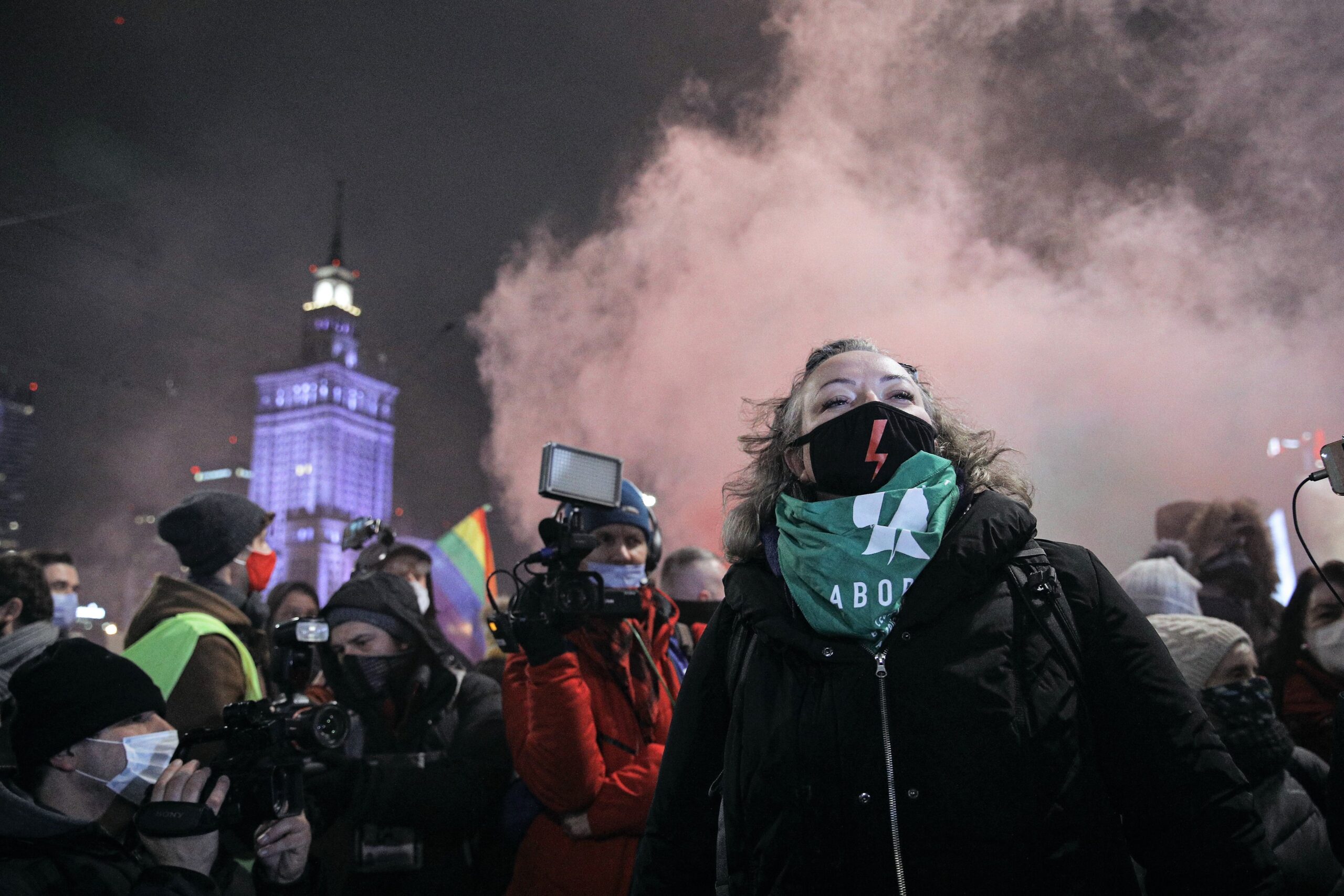Prosecutors have filed an indictment against three leaders of the mass protests against a near-total ban on abortion in Poland. They are accused of endangering public health and “causing an epidemiological threat” by bringing people onto the streets during the pandemic, a crime that carries up to eight years in prison.
The news comes amid the second anniversary of the constitutional court ruling that tightened the abortion law, and just after Human Rights Watch, an NGO, called on Poland to drop charges against leaders of and participants in the protests.
Yesterday marked the second anniversary of the constitutional court ruling introducing a near-total ban on abortion in Poland.
After the ruling went into force in January 2021, virtually all legal abortions ended.
For more, see our recent report https://t.co/ydX6ANJwBP
— Notes from Poland 🇵🇱 (@notesfrompoland) October 23, 2022
This morning, state broadcaster TVP reported that prosecutors in Warsaw have filed the indictment against Marta Lempart, Klementyna Suchanow and Agnieszka Czerederecka-Fabin of the All-Poland Women’s Strike (Ogólnopolski Strajk Kobiet, OSK), which brought hundreds of thousands onto the streets in 2020.
Aleksandra Skrzynkiarz, the spokeswoman for the Warsaw district prosecutor’s office, then confirmed to the Polish Press Agency (PAP) that the indictment was indeed submitted to Warsaw district court last Thursday, 20 October.
In addition to the charges relating to public health, Lempart is additionally accused of insulting police officers by spitting at them and using vulgar words, as well as of publicly praising crimes in relation to an interview in which she discussed vandalism of churches and disruption of masses by protesters.
The indictment against the three women was originally filed in July 2021, notes PAP. However, in November 2021 it was returned to prosecutors after the court found “significant shortcomings”. Judge Tomasz Grochowicz said that prosecutors needed to do more to demonstrate a link between the protests and a rise in Covid infections.
TVP also reports that Grochowicz wanted prosecutors to speak further with Radio Zet journalist Beata Lubecka, who conducted the interview in which Lempart is accused of publicly praising crimes.
Lempart had said that people “should have expected” the targeting of churches because “people are really pissed off at church institutions” and “these men went too far…into our lives and into our bodies”.
On 22 October, the second anniversary of the constitutional court’s abortion ruling, Human Rights Watch, a New York-based NGO, issued an appeal to the Polish authorities to drop “vexatious charges” against organisers of and participants in the protests that were triggered by the near-total ban.
It also called for action to be taken against “police [who] used violence to disperse rallies“, which were the largest protests in Poland’s post-communist history. They came at a time of rising Covid infections and despite restrictions limiting public gatherings to five people.
Last year, a spokesman for the US State Department confirmed that they are “aware of the charges against Marta Lempart” and “are watching the situation very closely”. The “right to peaceful protest and judicial independence are critical to every democracy”, he added.
Two years ago, hundreds of thousands of people – mostly women – protested against Poland's near-total ban on abortion. Police violently dispersed rallies and detained thousands. On Monday protesters in Warsaw will rally again. The government should listen. https://t.co/BdM0brfhtC pic.twitter.com/HcrgdIrEub
— Kenneth Roth (@KenRoth) October 23, 2022
Poland’s national-conservative ruling Law and Justice (PiS) party, however, has portrayed the protest leaders as violent radicals seeking to cause mayhem and overthrow the government.
In October 2020, shortly after the protests began, PiS chairman Jarosław Kaczyński declared that, by attacking churches, the protesters “intended to destroy Poland” and “end the history of the Polish nation as we know it”. He appealed to his supporters to defend churches.
As well as the charges she is facing for allegedly endangering the public, Suchanow has also been indicted for pouring paint over a police officer and damaging a historical church with graffiti, crimes that could also result in a prison sentence. She, Lempart and Czerederecka-Fabin have waived their legal right to privacy.
Main image credit: Dawid Zuchowicz / Agencja Wyborcza.pl

Daniel Tilles is editor-in-chief of Notes from Poland. He has written on Polish affairs for a wide range of publications, including Foreign Policy, POLITICO Europe, EUobserver and Dziennik Gazeta Prawna.




















